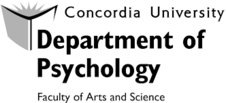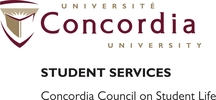

During challenging and uncertain times such as the COVID-19 pandemic, many of the goals we previously set are no longer attainable, either temporarily or indefinitely, which has a negative impact on our well-being [1]. For many, educational goals have been impacted due to struggles with online learning, relationship goals due to social distancing restrictions, and career/financial goals due to loss of work, reduced hours, or reduced opportunities. Notably, one survey showed that 71% of college students reported that their stress and anxiety levels had increased during the pandemic because they were worried about not being able to meet their goals, be it academic, work, or financial [1]. Experiencing blocked goals is harmful, given that goals can provide individuals with a purpose for living, and a sense of identity and well-being [4]. How can individuals become resilient and maintain their well-being when facing these obstacles? In her best-selling book “Grit: The Power of Passion and Perseverance,” Dr. Angela Duckworth, a psychology researcher and professor, suggests that grit enables individuals to overcome setbacks and succeed. When Dr. Duckworth worked a teacher of math to seventh graders in a New York public school, she noticed that IQ was not the only difference between her best and worst students [2]. Grit also differentiated the students who did well and those who did not. According to Dr. Duckworth, when people are gritty, they are passionate and perseverant in the face of obstacles towards their goals. As Dr. Duckworth eventually changed profession to become a psychology researcher, she consistently found, in various contexts, that grit enabled individuals to overcome challenges and become successful in what they do. While we may not be able to overcome all our challenges, developing grit can help us experience greater well-being, become resilient, and overcome setbacks [3, 6, 7].
Gritty people have two main qualities that distinguish them [5]. Gritty people show perseverance of effort, meaning that they are hard working and determined to accomplish a goal despite the presence of various obstacles. They also show consistency of interests and stay committed to their interests and goals over time. These two facets of grit are measured using the Grit Scale [5]. Studies have shown that gritty people experience greater well-being, including greater happiness, positive affect, and life satisfaction [3]. Furthermore, gritty people are also more likely to be resilient when dealing with stressful situations. In other words, they are less discouraged after failure, less vulnerable to stress, and can overcome hardship. Indeed, college students who are gritty – as assessed using the Grit Scale – reported greater resilience and well-being, and less psychological and academic harms during the COVID-19 pandemic [6]. Therefore, when we are struggling to cope with various challenges, we may find strength by building our grit.
In addition, another part grit is passion for long-term goals. This passion is important when facing challenges since persistence alone may not be enough to overcome setbacks. In one study, researchers interviewed top college students to discover the secret of their academic success. Through qualitative analyses of the interviews, the researchers found that successful students were extremely gritty and did not let stressful life events consume their studies [7]. In fact, these gritty students were more likely to overcome challenges and obstacles to their goals because they were passionate and strongly identified with their long-term goals [7]. Therefore, as we develop our passion for a long-term goal, we become determined to strive for our goal no matter what comes our way.
To conclude, when we are having difficulty overcoming life’s challenges, the reason could be lack of grit. This means that each person should strive to develop grit. Fortunately, grit can be modified and can grow, for instance by striving for long-term goals that are consistent with one’s authentic self [8]. If students build their grit, they will likely experience greater well-being, become more resilient and better able to overcome obstacles [3, 6, 7]. Of course, even if students improve their grit, they may still face mental health challenges following stressful situations. Yet, we should not underestimate how important grit is. As Dr. Duckworth said, “Grit is living life like it’s a marathon, not a sprint” [2].
References
-
Wang, X., Hegde, S., Son, C., Keller, B., Smith, A., & Sasangohar, F. (2020). Investigating Mental Health of US College Students During the COVID-19 Pandemic: Cross-Sectional Survey Study. Journal of medical Internet research, 22(9), Article e22817. https://doi.org/10.2196/22817
-
TED. (May 9, 2013). Grit: the power of passion and perseverance | Angela Lee Duckworth [video]. YouTube. https://www.youtube.com/watch?v=H14bBuluwB8
-
Singh, K., & Jha, S. D. (2008). Positive and negative affect, and grit as predictors of happiness and life satisfaction. Journal of the Indian Academy of Applied Psychology, 34, 40–45. https://www.researchgate.net/publication/285749956_Positive_and_negative_affect_and_grit_as_predictors_of_happiness_and_life_satisfaction
-
Shulman, S., & Nurmi, J.-E. (2010). Understanding emerging adulthood from a goal-setting perspective. New Directions for Child and Adolescent Development, 2010(130), 1–11. https://doi.org/10.1002/cd.277
-
Duckworth, A. L., Quinn, P. D., & Seligman, M. E. P. (2009). Positive predictors of teacher effectiveness. The Journal of Positive Psychology, 4(6), 540–547. https://doi.org/10.1080/17439760903157232
-
Bono, G., Reil, K., & Hescox, J. (2020). Stress and wellbeing in college students during the COVID-19 pandemic: Can grit and gratitude help? International Journal of Wellbeing, 10(3), 39–57. https://doi.org/10.5502/ijw.v10i3.1331
-
Kannangara, C. S., Allen, R. E., Waugh, G., Nahar, N., Khan, S., Rogerson, S., & Carson, J. (2018). All That Glitters Is Not Grit: Three Studies of Grit in University Students. Frontiers in psychology, 9, Article 1539. https://doi.org/10.3389/fpsyg.2018.01539
-
Vainio, M. M., & Daukantaitė, D. (2016). Grit and different aspects of well-being: Direct and indirect relationships via sense of coherence and authenticity. Journal of Happiness Studies, 17(5), 2119–2147. https://doi.org/10.1007/s10902-015-9688-7
About the Author

Lisa Sarraf is an Honours student in Psychology at Concordia University, soon to be graduate. She conducted her Honours thesis under the supervision of Dr. Erin Barker, in the lifespan well-being lab. Lisa’s research interests include understanding how young adults cope with life challenges encountered during emerging adulthood, a transitional period from adolescence to adulthood. She is also interested in examining risk and protective factors associated with personality disorders and relational/social aggression. In the near future, Lisa will be conducting more research in the field of developmental/clinical psychology.






Share this post
Twitter
Facebook
Email